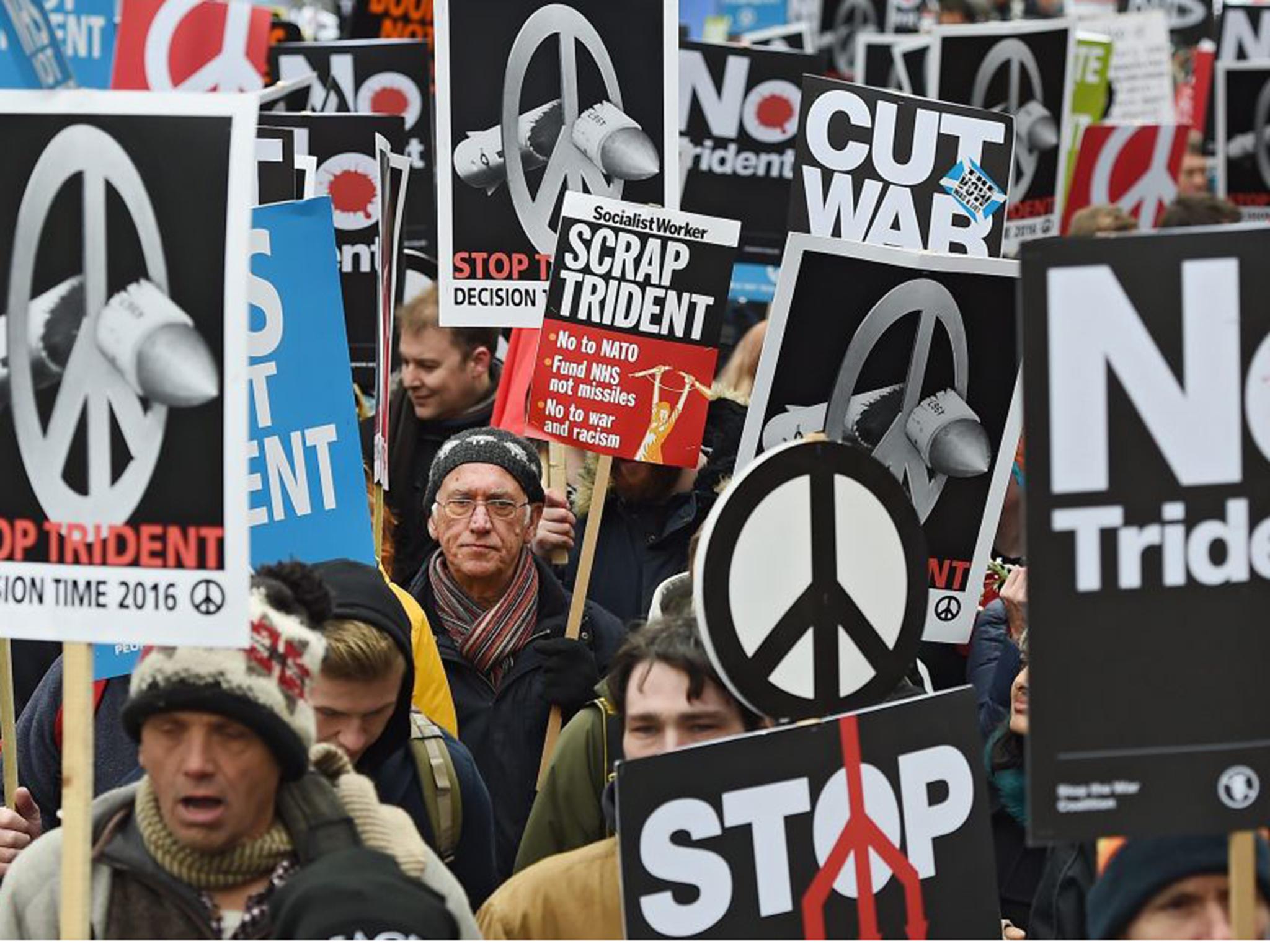At what price will the vote deciding Trident's future be won?
Jeremy Corbyn has so far not given a clear lead – perhaps has not been allowed to give a clear lead – on the issue. The Tories are clearer on where they stand, but the resources to power Trident don't come cheap

One of David Cameron’s last acts as prime minister was to schedule a parliamentary vote on a replacement for Trident. In his valedictory phase, it was pretty much all the now ex-PM could do when he attended his last Nato summit in Warsaw. It will have the great benefit of uniting his party just as his successor is starting to make some painful decisions, and the benefit of confounding the opposition, with Labour as hopelessly split on nuclear weapons as at any time in its history. Given that it has suffered its greatest wounds over nuclear armaments, even under skilled leadership and with a party intent on unity, then that is saying quite a lot about the current state of Labour.
The vote will, of course, be won, despite the opposition of a substantial slice of the Labour Party and the Scottish Nationalists. The SNP, to their credit, are maintaining their opposition to the Trident replacement despite the jobs that the nuclear submarine base brings to Holy Loch. Labour’s position is more nuanced, to put things politely. Jeremy Corbyn has so far not given a clear lead – perhaps has not been allowed to give a clear lead – on the issue.
Early in his leadership he suggested retaining nuclear-powered submarines but removing their nuclear warheads, which pretty much amounts to the worst of all worlds – an extremely expensive non-deterrent. Mr Corbyn also said in one of his first interviews that he would never use nuclear weapons, eschewing the usual formulation about leaving potential enemies in the dark about our intentions. Now there is speculation about a free vote, basically making the best of a bad job given the three-way split about to fracture the Parliamentary Labour Party.
Some brief that Mr Corbyn might even sanction the possession of nuclear weapons in some way (which once again will beg the question of the point of the UK owning them if a Labour prime minister tells the world he has no intention of ever firing them off). If so, then he may expect to lose his leadership because he is no longer left wing enough. Strange days indeed.
There was a strong case for the British nuclear deterrent in the Cold War, and the cost – in the context of outspending the Soviet Union and defeating it through economic pressure – could be borne as the price of liberty and of hastening the end of that cold war. As we all know from recent events, the threats to Western nations are very different to those in the Soviet era, even though Russia is evidently a resurgent power. A nuclear powered submarine with warheads that reach across continents and kill millions in minutes is no deterrent to a terrorist in a lorry.
Nato has been an effective force in many of the conflicts that have taken place in the last quarter century, but never has it even thought about using its nuclear arsenal. Had Ukraine been a member of Nato then it might have become a live problem, and it still might in the case of the Baltic states, but Russia did what it did in Crimea with little fear of the Nato arsenal, conventional or nuclear.
So the question is whether the cost of a fully operational Trident replacement, or even the economical version where not all of the missiles are at sea at any given time, can be justified against the range of threats facing us now or in the foreseeable future. Given the weakness of the post-Brexit economy, and the immediate demands on the defence budget as we attempt to intervene in so many theatres, the balance of the argument is tipping away from nuclear weaponry. Ms May will win her vote easily enough, but will find it much harder to find the resources to devote to this particular weapons system. No doubt it could help the nation feel and be more secure; but at what price?
Join our commenting forum
Join thought-provoking conversations, follow other Independent readers and see their replies
Comments
Bookmark popover
Removed from bookmarks